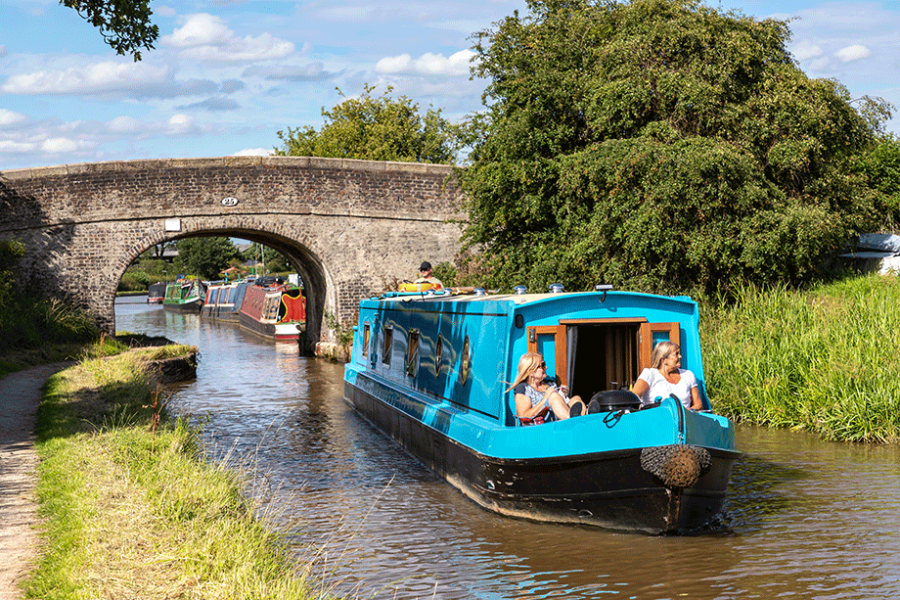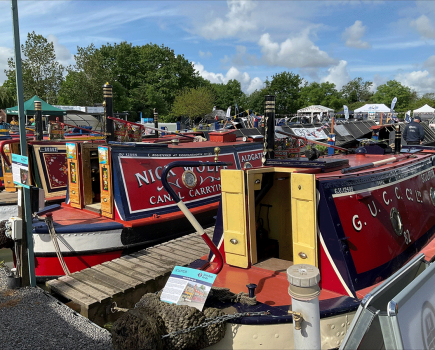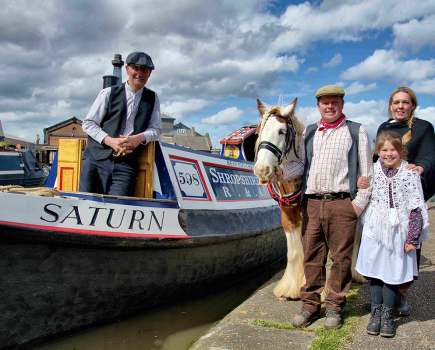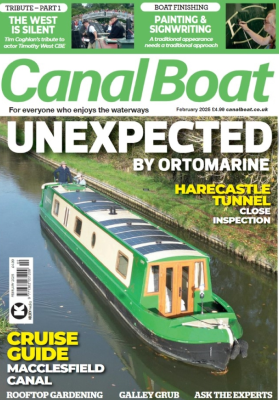Britain’s oldest, leading independent waterways campaign group today warned of the loss of thousands of jobs, health and wellbeing benefits and nature habitats if our canals and rivers fall into disrepair due to government funding cuts.
Inland Waterways Association (IWA) volunteers stopped the canal network from being concreted over in the 1950s and, since then, have supported and helped the restoration of 500 miles of navigable waterways with the opportunity to transform another 500 miles. It’s estimated that 80,000 jobs are directly connected to Britain’s waterways, from canal side cafes to major housing, sporting and leisure developments, which collectively contribute £1.5 billion annually to the economy.
IWA is now urging the public to write to their MPs to object to the Government’s announcement that it will reduce its maintenance and repair grant funding by more than £300 million in real terms over the next decade.
The Association’s National Chair, Les Etheridge, said: “Our waterways system is in very real danger of disappearing. If parts of the network fall into disrepair or close, this will be at the cost of the hundreds if not thousands of businesses that rely daily on waterways users.”
He emphasised that DEFRA has cut funding at a time when the bill for maintaining these precious assets is actually growing exponentially, not falling, due to climate change and inflation: “Adverse weather events such as hot dry spells and storms have already damaged heritage buildings and structures and resulted in alarming rises in fish deaths in canals, where still water is particularly vulnerable to oxygen depletion. At a time like this, the Government should be protecting nature and wildlife, not turning its back on it.”
DEFRA’s reduced grant allocation to the Canal & River Trust, the body responsible for managing and maintaining 2000 miles of UK waterways, has come in spite of much evidence accepted by the Government showing that blue-green spaces deliver substantial benefits to the economy, to individuals and communities, and to nature and biodiversity.
IWA CEO, Professor Sarah Niblock, said: “We’re representing the needs of millions of people in the UK who rely on the waterways for their mental and physical health as well as for work, commuting and leisure.
“Among the people who will be worst hit by any decline will be those who are already most vulnerable such as those living in deprived areas, most of which have waterways running through them. In urban areas, the waterways offer some of the only glimpses of nature we get as well as a space for different parts of the community to interact.”
The Environment Agency, which is funded mainly by DEFRA, received less than half the expected grant in aid funding which pays for their operational staff, maintenance work and major asset improvement or replacement projects.
Prof Niblock added: “Our inland waterways offer an incredible solution to many societal challenges – economic regeneration, addressing the mental health crisis, building community cohesion as well as mitigating the effects of climate change. The cost-benefit analysis of investment is irrefutable but it’s as if the government is now turning its back on this.”
All of Britain’s waterways require considerable investment to maintain but, with some canals dating back 250 years, ageing infrastructure and the growing impact of climate change will lead to increasing repair backlogs and inevitable closures of sections of the waterways.
Mr Etheridge said: “We’re already seeing increasing and extended levels of closures and each one of those impacts businesses relying on passing trade.”
The DEFRA offer of £400m over 10 years averages out as grant funding of £40m per year from 2028-2037, compared with the current £52.6m per year. At the level of spend on operating, maintaining and repairing waterways reported by CRT for 2021/22, IWA estimates that with an average grant reduction of £12.6m per year, the funding cuts would mean:
• being unable to do winter maintenance on 586 miles of waterway
• being unable to operate, maintain and repair 156 miles of waterway
• that 50% of the spend on reservoirs will be unfunded.
Mr Etheridge said that the renaissance and popularity of the waterways is due in no small part to the work of tireless campaigners and volunteers over the past 75 years-plus, but that could soon be consigned to history.








